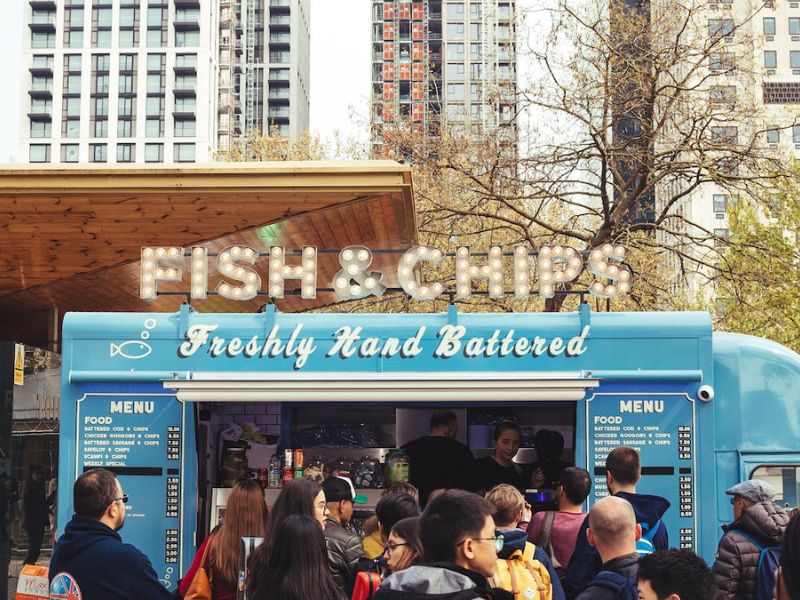Food trucks present unique challenges due to limited staff and space. Operators must efficiently manage tasks in a compact, time-sensitive environment. Despite these hurdles, experts assert that well-run food trucks uphold the same strict standards as traditional restaurants. Negative assumptions about food truck safety persist, especially for those in less trendy areas. Jonathan Deutsch, a food management professor at Drexel University, advises transparency in food safety practices to reassure customers. It builds confidence and addresses potential health concerns.

Image Credit: Kampus Production
A Neat Exterior And Service Area
A certified culinary instructor, Melanie Underwood, highlights that a well-maintained exterior often reflects a clean and organized interior. Check for clean windows, an orderly kitchen, and a spotless counter, indicating a dedication to hygiene. Moreover, if condiment squeeze bottles are provided, they must be adequately cleaned and sanitized.
Visible Health Department Certificates
“Brian Chau, a food scientist, stresses the importance of prominently displaying health department permits and certificates in food trucks. It demonstrates a commitment to food safety standards, akin to restaurants.”
Staff In Proper Protective Gear
Brian Chau recommends that food truck staff wear gloves and aprons for customer assurance. Gloves are crucial for preparing sandwiches or smoothies, while fryer operations require less emphasis due to high heat. Customers should also watch for glove changes after handling raw ingredients, especially if money is involved.

Image Credit: Pexels/KampusProduction
Hand Sanitizer Access For Guests
Food safety experts find reassurance in knowing that food truck employees maintain clean hands while working. However, since food truck patrons often lack access to well-appointed restrooms, Jonathan Deutsch emphasizes the importance of providing hand sanitizer for customers to use before they eat.
Willingness To Communicate With Diners
Food trucks provide a unique view of kitchen operations compared to traditional restaurants. Francine Shaw suggests using this advantage to educate customers. Display food safety practices on signage, menus, or promotional materials, emphasizing the commitment to quality ingredients and safe handling procedures. Additionally, Shaw advises promptly addressing customer inquiries or concerns about food safety to build trust and loyalty.